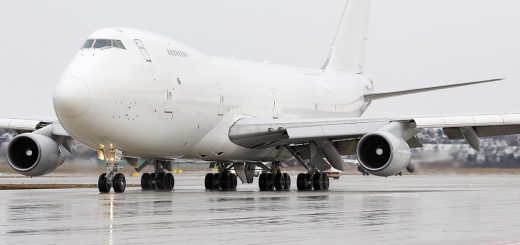Why you need an e-Form M for the importation of goods into Nigeria

There are specific rules and regulations governing trade globally. Likewise, specific documents are mandatory requirements for the cross-border importation and exportation of goods in every country.
Though there are universal documents like the Bill of Lading, Airwaybill, Commercial Invoice, and Packing List, Nigeria specifically requires an e-Form M for the importation of goods into her territory, whether via air, sea, or even land.
Form M is a principal document put in place by the Central Bank of Nigeria (CBN) and the Nigerian Customs Service.
The question for someone who is interested in importing into Nigeria would then be, what is a Form M?
What are the requirements, and how can an importer obtain this in Nigeria?
E-Form M is an electronic document used in international trade to monitor and regulate the importation of goods into a country. It is a mandatory document that must be completed by importers in many countries, including Nigeria, and submitted to the appropriate authorities before goods can be imported.
It serves as a way for customs officials to verify the details of an import transaction, such as the identity of the importer, the value and quantity of the goods being imported, and the country of origin. It also helps to prevent fraud and ensure that the correct amount of taxes and duties are paid.
It is a mandatory document generated electronically, approved by the Central Bank of Nigeria and the Nigerian Customs Service, as the principal requirement for the importation of goods into Nigeria.
This is to ensure that the appropriate import duties are paid for imported items. It contains comprehensive detail on the cargo being imported – including its value. It has an initial validity period of 360 days for general merchandise goods but can be extended for another 180 days by an Authorized Dealer Bank. For plants, machinery, and equipment, the initial validity is 720 days but can be extended for another 360 days by an Authorized Dealer Bank.
A Form M also has a Banker’s Acceptance (BA) number. The BA number is usually indicated in Form M issued to importers and specifies the amount payable, the date, and the person to whom the payment is due.
What Are The Requirements, and How Can An e-Form M Be Opened?
Application and submission of documents are made through the single windows for trade platform trade.gov.ng, using the importer’s TIN, already validated with FIRS. Once submitted, it is processed by the bank for approval and registered by customs. The following documents below are submitted during processing.
- Proforma Invoice
- Insurance Certificate
- Product Certificate (for Standard Organization of Nigeria (SON) regulated items)
- E-permit for NAFDAC-regulated items.
The Case for Compliance with e-Form M Processing
The Nigerian government expects every importer to comply with Form M processing prior to the importation of authorized items into the Nigerian territory. Non-compliance with this rule simply means that the importer will not be able to ship, except in cases of special or approved exemptions. Also, the date on the Form (Say August 25, 2021) should precede the date of sailing (say August 30, 2021). However, in cases where cargo sailed earlier than the date captured in Form M, the importer must notify the CBN in writing, requesting for a special grant, while offering valid reasons why they should be granted special privileges.
The key consideration for processing a Form M prior to the importation of goods into Nigeria is compliance.
Importers are expected to be 100% compliant with the pre-importation procedures – including Form M processing.
Fortune Global is one of the leading industry advocates of compliance and transparency in the import process. With a strong pedigree of excellent performance in import documentation and clearance procedure, we offer end-to-end advisory on all requirements for the importation of diverse cargo – including the cargoes that fall under special privileges and exemptions.



